Letters from Wilfred Evans to his family, 1915 - Part 16
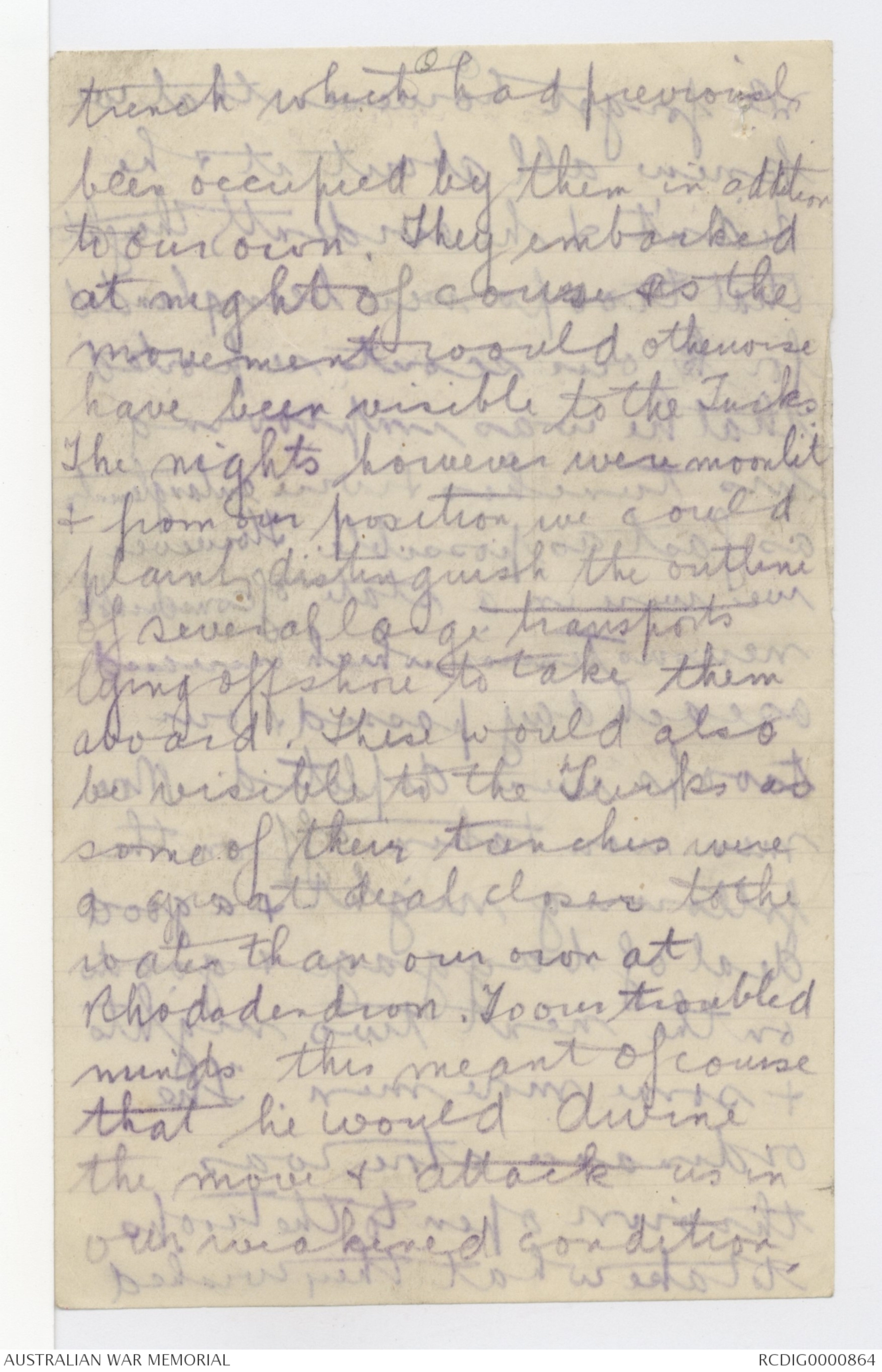
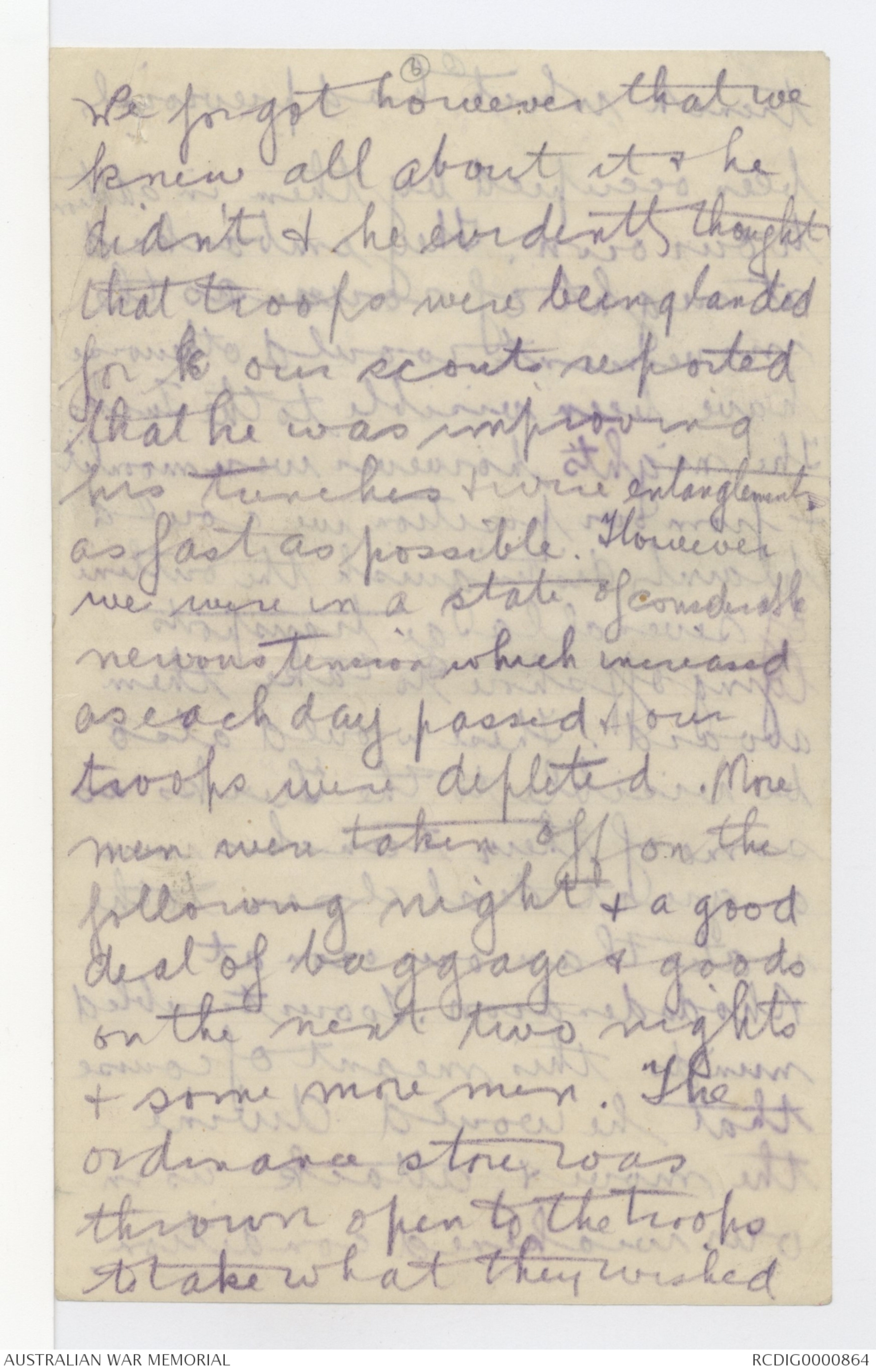
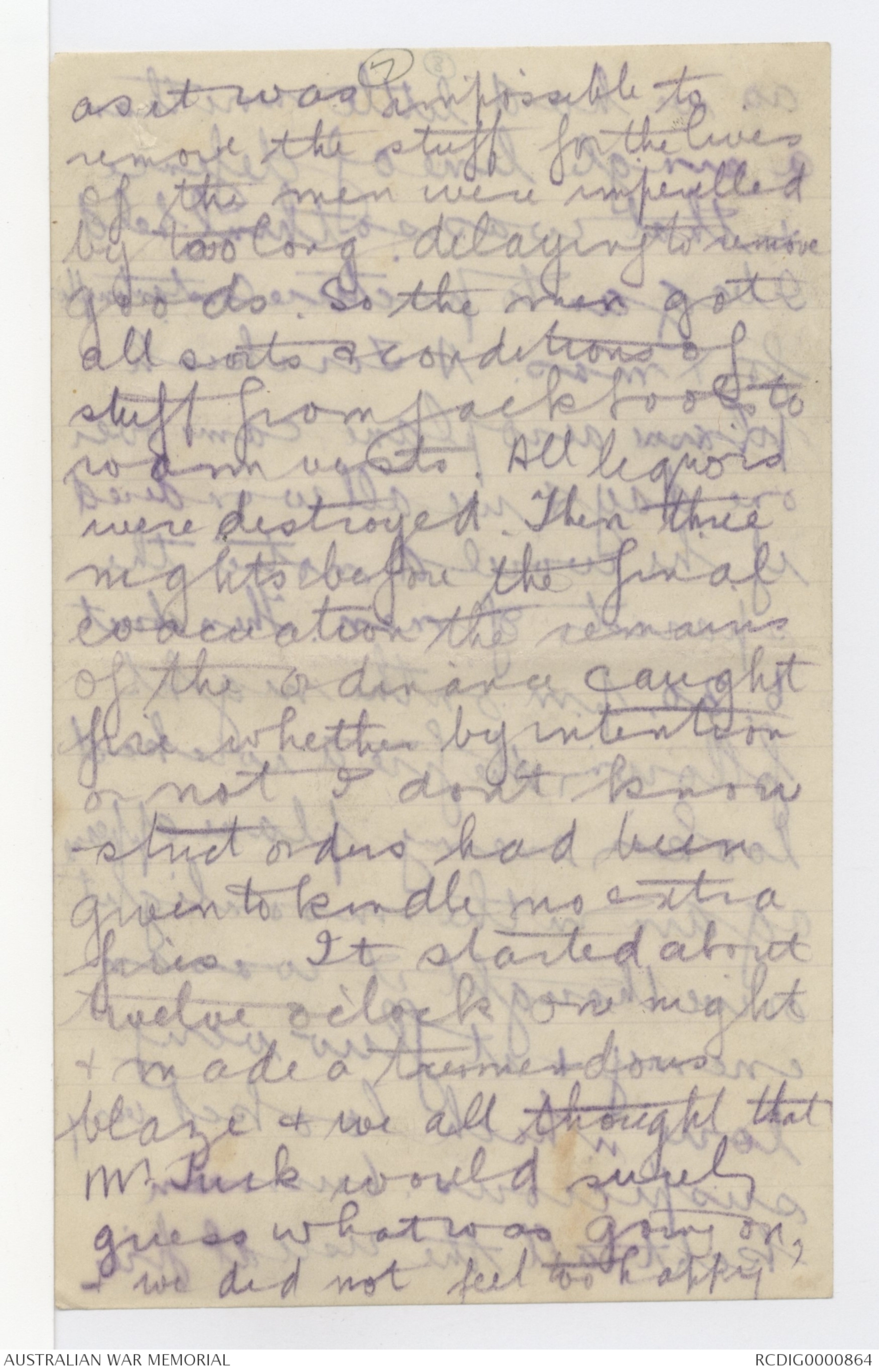
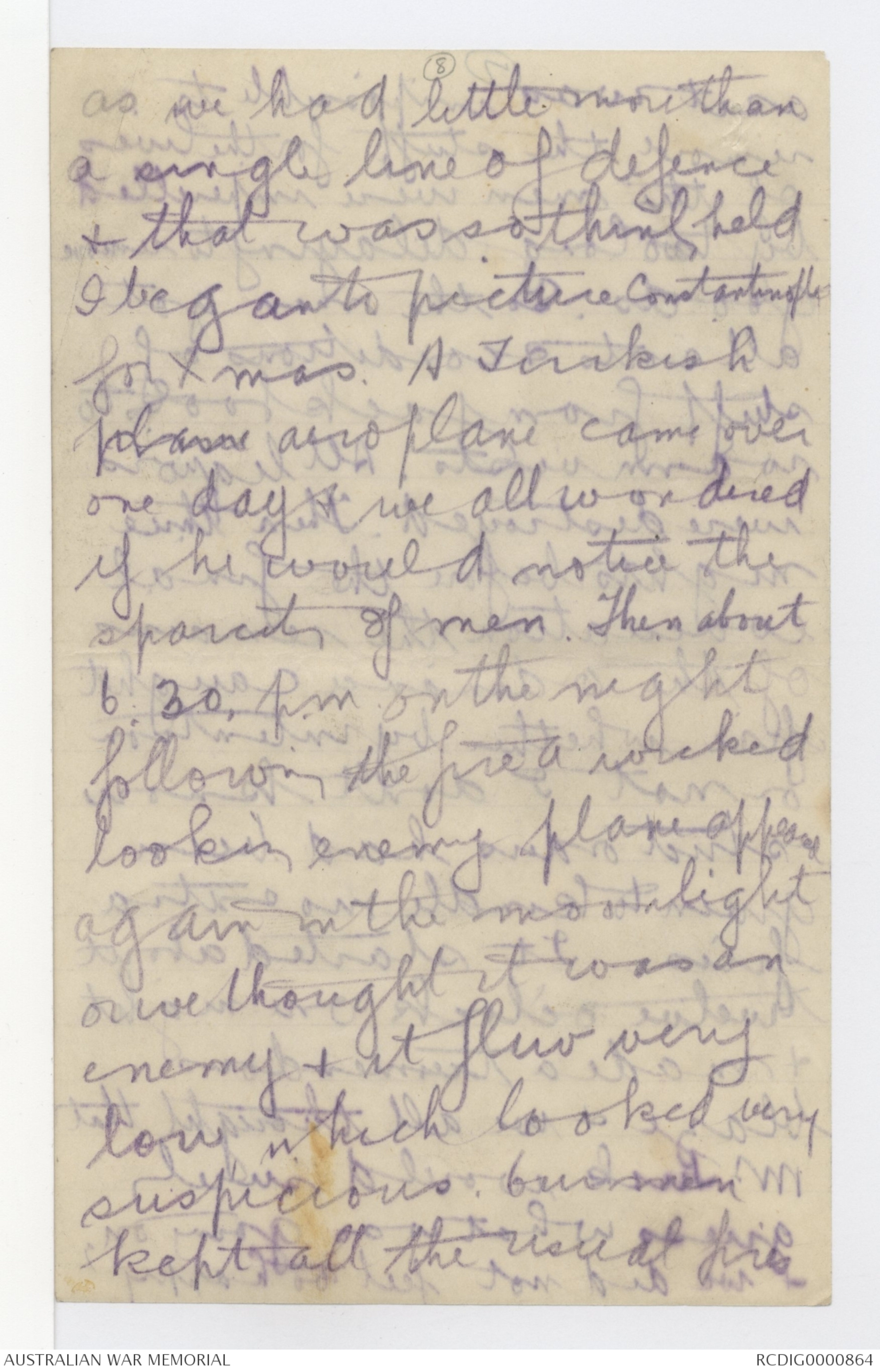
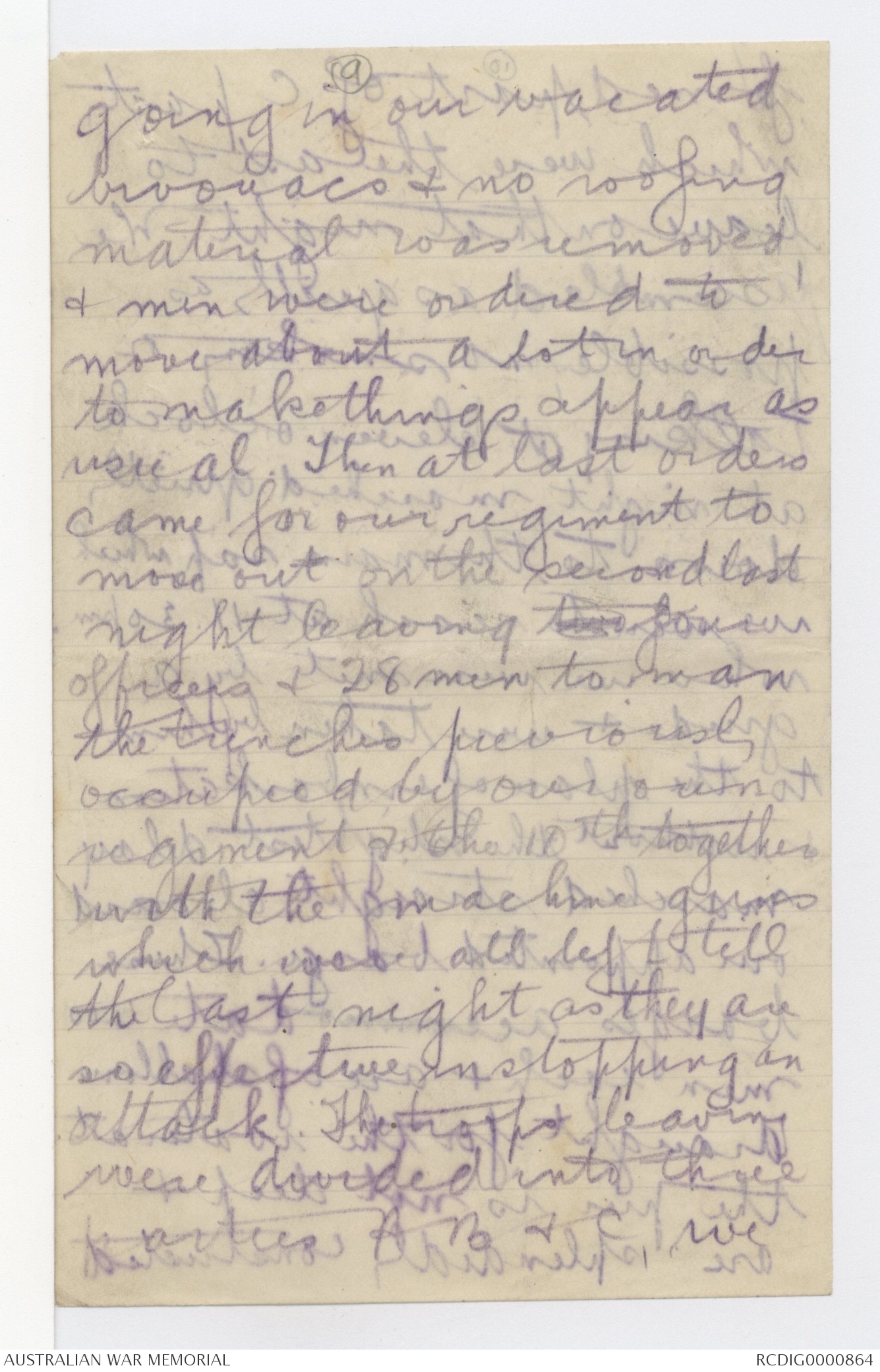
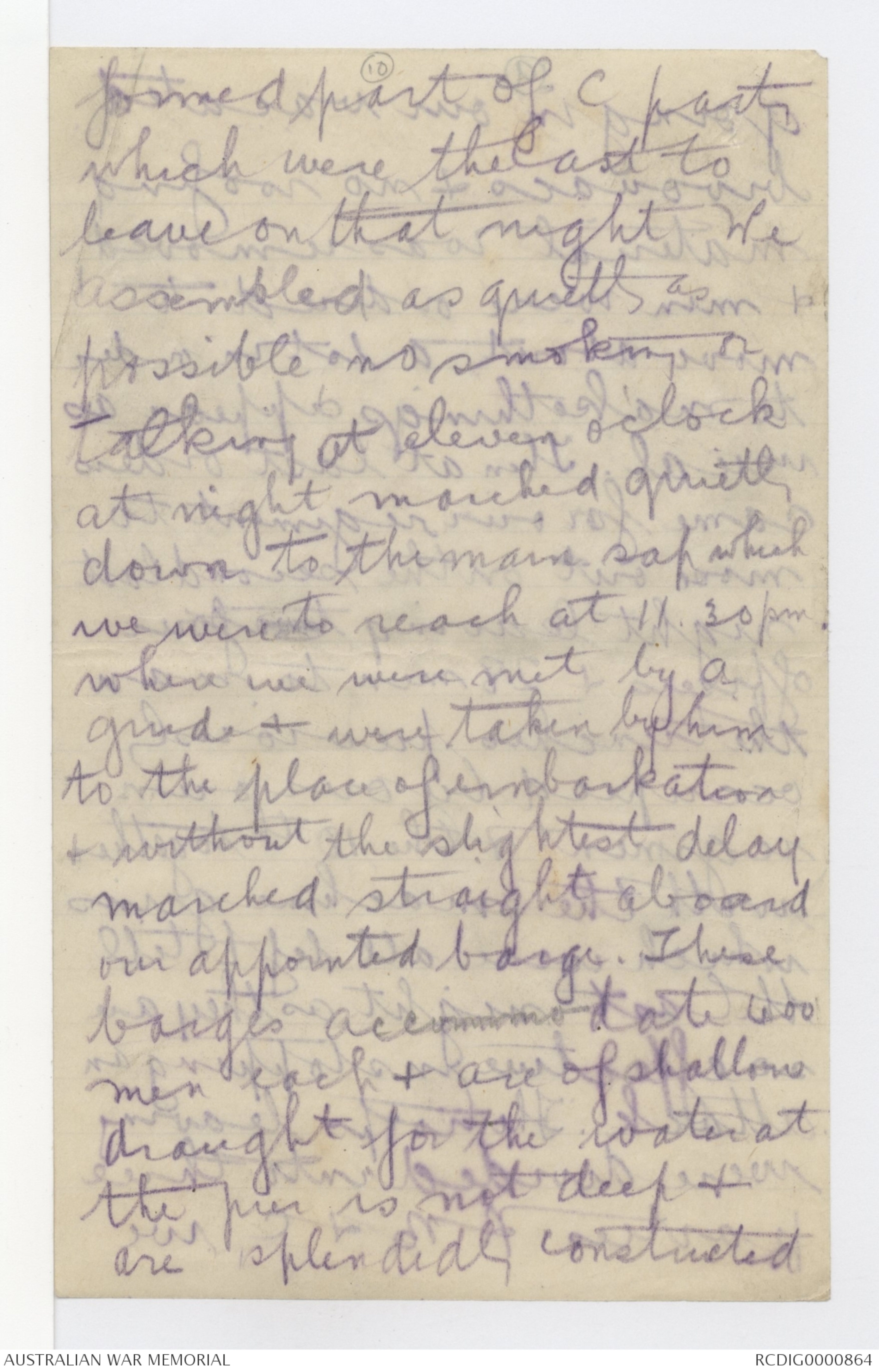
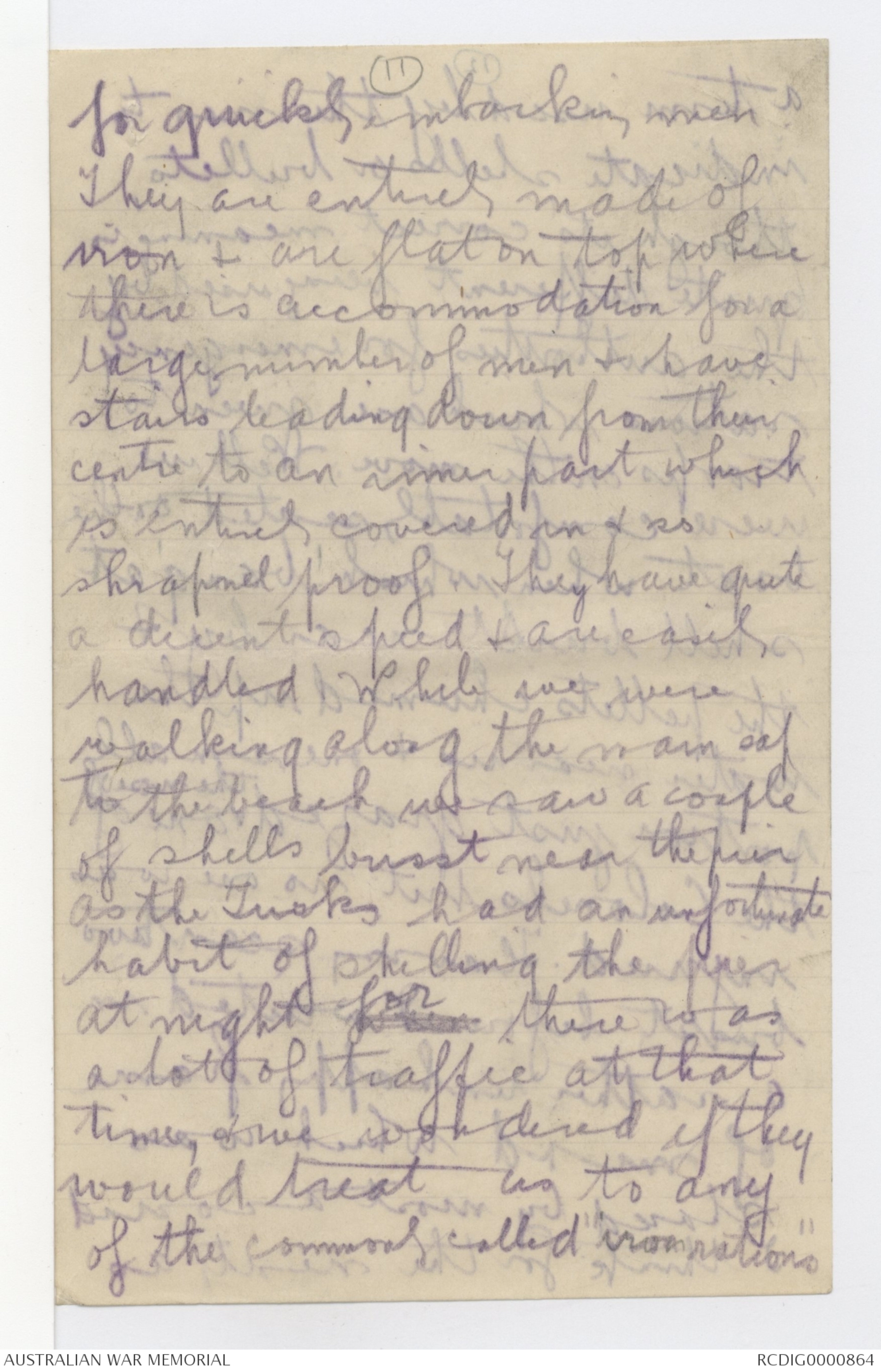
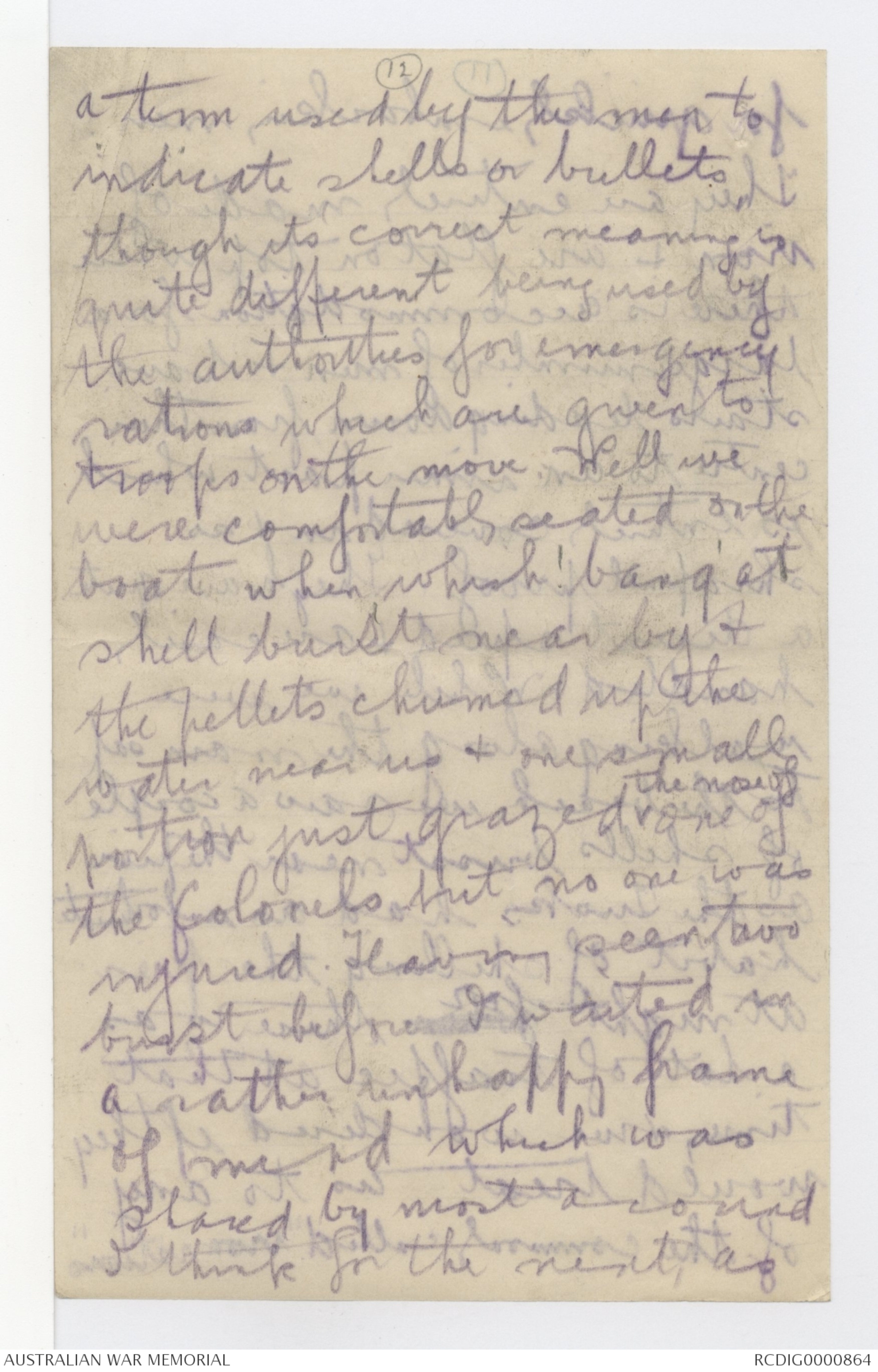
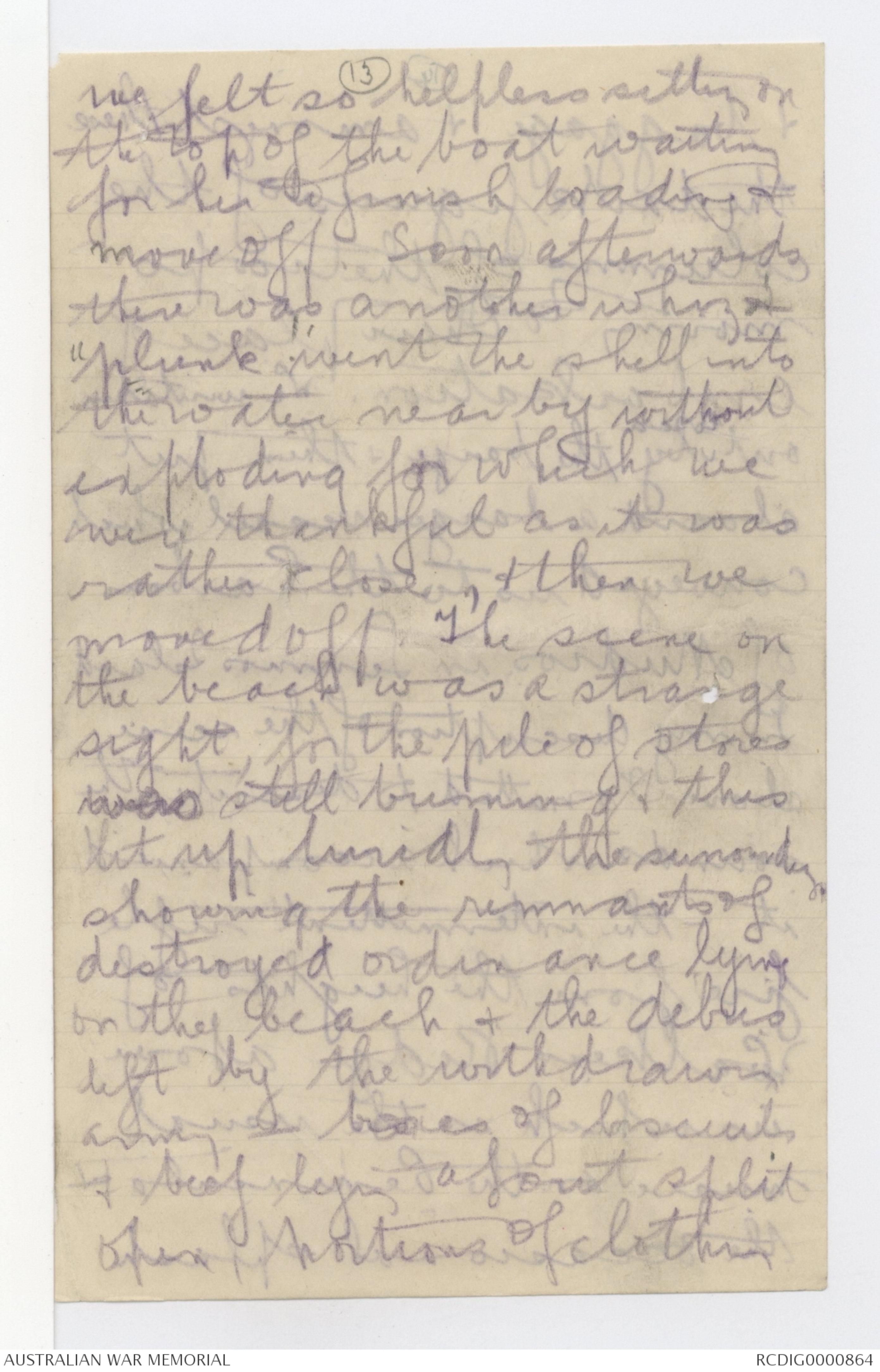
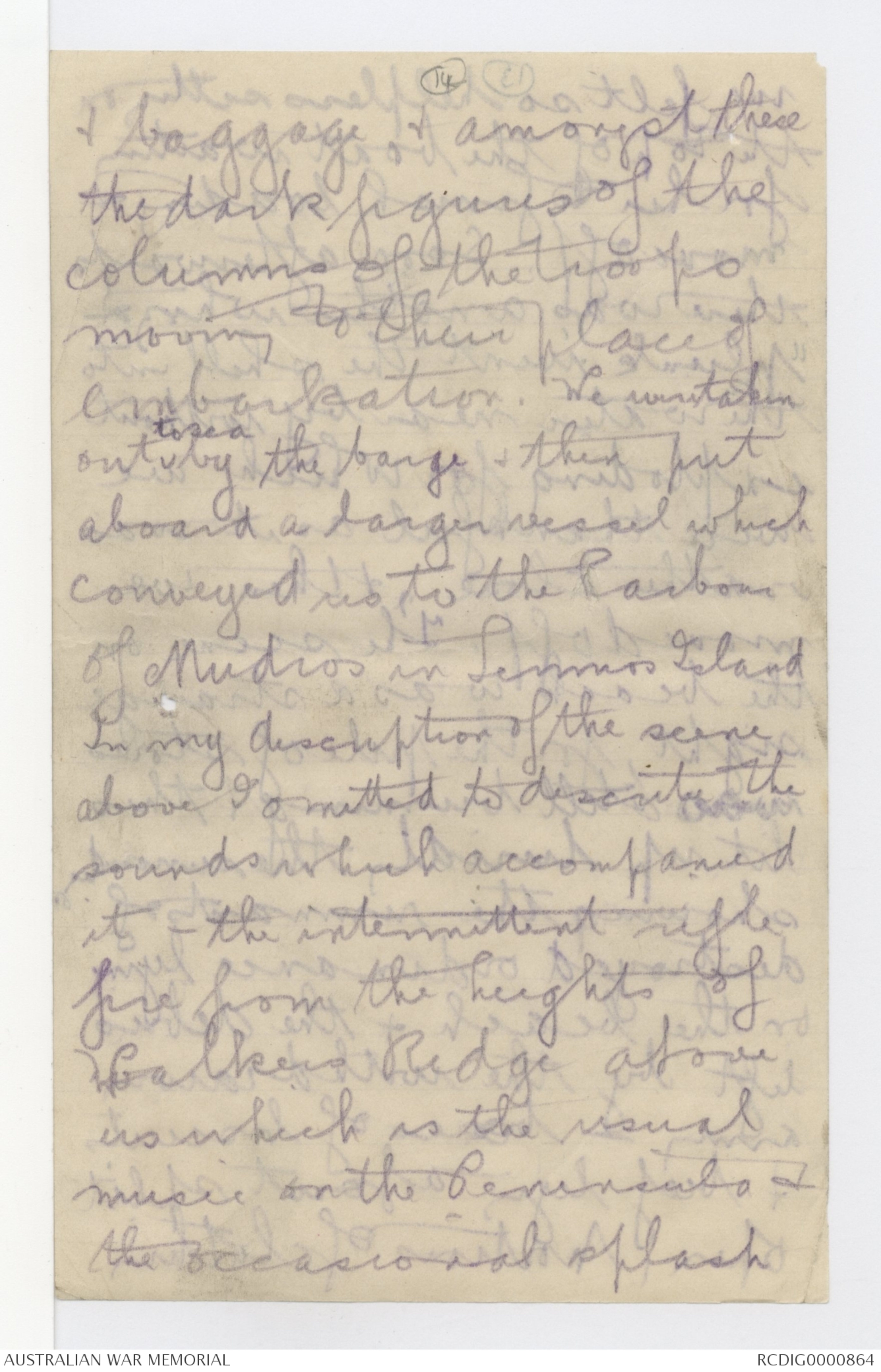
5
trench which had previously
been occupied by them in addition
to our own. They embarked
at night of course as the
movement would otherwise
have been visible to the Turks.
The nights however were moonlit
& from our position, we could
plainly distinguish the outline
of several large transports
lying offshore to take them
aboard. These would also
be visible to the Turks as
some of their trenches were
a great deal closer to the
water than our own at
Rhododendron. To our troubled
minds this meant of course
that he would divine
the move & attack us in
our weakened condition.
6
We forgot however that we
knew all about it & he
didn't & he evidently thought
that troops were being landed
for to our scouts reported
that he was improving
his trenches & wire entanglements
as fast as possible. However
we were in a state of considerable
nervous tension which increased
as each day passed & our
troops were depleted. More
men were taken off on the
following night & a good
deal of baggage & goods
on the next two nights
& some more men. The
ordinance store was
thrown open to the troops
to take what they wished
7
as it was impossible to
remove the stuff for the lives
of the men were imperilled
by too long delaying to remove
goods. So the men got
all sorts & conditions of
stuff from Jack boots to
warm vests. All liquors
were destroyed. Then three
nights before the final
evacuation the remains
of the ordinance caught
fire, whether by intention
or not I don't know
- strict orders had been
given to kindle no extra
fires. It started about
twelve o'clock one night
& made a tremendous
blaze & we all thought that
Mr. Turk would surely
guess what was going on,
- we did not feel too happy
8
as we had a little more than
a single line of defence
& that was so thinly held
I began to picture Constantinople
for Xmas. A Turkish plane aeroplane came over
one day & we all wondered
if he would notice the
sparcity of men. Then about
6.30 p.m. on the night
following the fire a wicked
looking enemy plane appeared
again in the moonlight
or we thought it was an
enemy & it flew very
low which looked very
suspicious. Our men
kept all the usual fires
9
going in our vacated
bivouacs & no roofing
material was removed
& men were ordered to
move about a lot in order
to make things appear as
usual. Then at last orders
came for our regiment to
move out on the second last
night leaving two four
officers & 28 men to man
the trenches previously
occupied by our own
regiment & the 10th together
with the machine guns
which were all left till
the last night as they are
so effective in stopping an
attack. The troops leaving
were divided into three
parties A B & C, we
10
formed part of C party
which were the last to
leave on that night. We
assembled as quietly as
possible no smoking or
talking at eleven o'clock
at night marched quietly
down to the main sap which
we were to reach at 11.30 pm
where we were met by a
guide & were taken by him
to the place of embarkation
& without the slightest delay
marched straight aboard
our appointed barge. These
barges accommodate 400
men each & are of shallow
draught for the water at
the pier is not deep &
are splendidly constructed
11
for quickly embarking men.
They are entirely made of
iron & are flat on top where
there is accommodation for a
large number of men & have
stairs leading down from their
centre to an inner part which
is entirely covered in & so
shrapnel proof. They have quite
a decent speed & are easily
handled. While we were
walking along the main sap
to the beach we saw a couple
of shells burst near the pier
as the Turks had an unfortunate
habit of shelling the pier
at night when for there was
a lot of traffic at that
time, & we wondered if they
would treat us to any
of the commonly called "iron rations"
12
a term used by the men to
indicate shells or bullets
though its correct meaning is
quite different being used by
the authorities for emergency
rations which are given to
troops on the move. Well we
were comfortably seated on the
boat when whish! bang! as
shell burst near by &
the pellets churned up the
water near us & one small
portion just grazed ^the nose of one of
the Colonels but no one was
injured. Having seen two
burst before I waited in
a rather unhappy frame
of mind which was
shared by most around
I think for the next, as
13
we felt so helpless sitting on
the top of the boat waiting
for her to finish loading &
move off. Soon afterwards
there was another whiz &
"plunk" went the shell into
the water near by without
exploding for which we
were thankful as it was
rather close, & then we
moved off. The scene on
the beach was a strange
sight, for the pile of stores
was still burning & this
lit up luridly the surroundings
showing the remnants of
destroyed ordinance lying
on the beach & the debris
left by the withdrawn
army - boxes of biscuits
& beef lying about, split
open, portions of clothing
14
& baggage, & amongst these
the dark figures of the
columns of the troops
moving to their place of
embarkation. We were taken
out ^to sea by the barge & then put
aboard a larger vessel which
conveyed us to the harbour
of Mudros on Lemnos Island
In my description of the scene
above I omitted to describe the
sounds which accompanied
it - the intermittent rifle
fire from the heights of
Walkers Ridge above
us which is the usual
music on the Peninsula &
the occasional splash
 Jacqueline Kennedy
Jacqueline KennedyThis transcription item is now locked to you for editing. To release the lock either Save your changes or Cancel.
This lock will be automatically released after 60 minutes of inactivity.